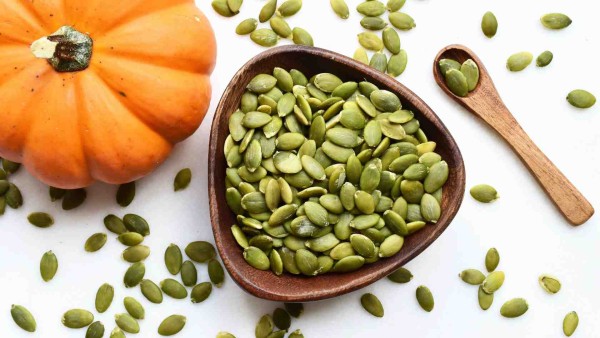Madhya Pradesh, a state renowned for its fertile lands and vibrant agricultural practices, presents a promising opportunity for entrepreneurs venturing into the dynamic world of pumpkin seed processing. With a growing demand for pumpkin seed products both domestically and internationally and an abundance of raw material readily available, establishing a pumpkin seed processing plant in this region can be a venture with significant potential.
Demand Devouring Distance:
Pumpkin seeds, also known as pepitas, are a nutrient-rich and versatile ingredient with a growing global market. They are rich in protein, fiber, healthy fats, vitamins, and minerals, making them a popular addition to diets focused on health and wellness. The demand for pumpkin seed products is further fueled by their culinary versatility and use in various food and beverage applications.
Raw Material Availability and Sources:
Madhya Pradesh is a significant producer of pumpkin seeds, with over 0.2 million hectares dedicated to pumpkin seed cultivation. The state's favorable climatic conditions and rich soil make it an ideal environment for pumpkin seeds to thrive. Sourcing fresh pumpkin seeds from local farmers and aggregators is relatively straightforward, ensuring a steady supply of raw material for processing plants.
Processing Techniques:
A pumpkin seed processing plant typically involves a series of steps to ensure the safety, quality, and preservation of the seeds. These steps include:
-
Harvesting: Pumpkin seeds are harvested from pumpkin plants in the months of September to November when the fruits are fully ripe.
-
Cleaning: The seeds are cleaned to remove impurities, dirt, and debris.
-
Drying: The seeds are dried to remove moisture and extend their shelf life.
-
Sorting: The seeds are sorted based on size, color, and quality.
-
Grading: The seeds are graded based on size, color, and quality.
-
Packaging: The seeds are packaged in various containers, such as bags, jars, or cans.
Machinery Requirements:
A pumpkin seed processing plant requires a range of machinery to handle the various stages of processing. These include:
-
Harvester: To collect pumpkin fruits from plants.
-
Cleaning machines: To remove impurities, dirt, and debris from the seeds.
-
Drying machines: To remove moisture from the seeds.
-
Sorting machines: To sort the seeds based on size, color, and quality.
-
Grading machines: To grade the seeds based on size, color, and quality.
-
Packing machines: To package the seeds in various containers.
By-Products:
Pumpkin seed processing generates valuable byproducts that can be further processed or used in other applications. These include:
-
Pumpkin seed oil: A high-quality oil used in cooking, cosmetics, and pharmaceuticals.
-
Pumpkin seed cake: A nutritious meal used in animal feed and other applications.
Value-Added Products:
To stand out in the market, pumpkin seed processing plants can produce value-added products, such as:
-
Roasted pumpkin seeds: A popular snack food high in protein and fiber.
-
Shelled pumpkin seeds: Whole pumpkin seeds free from shells.
-
Pumpkin seed oil: A flavorful and nutritious oil used in cooking, salad dressings, and cosmetics.
-
Pumpkin seed flour: A versatile flour used in baking and cooking.
-
Pumpkin seed butter: A creamy and nutritious spread made from pumpkin seeds.
Preservation Methods:
Processed pumpkin seed products can be preserved using various methods, including:
-
Roasting: To enhance flavor and improve shelf life.
-
Vacuum sealing: To remove air and extend shelf life.
-
Refrigeration: For short-term storage.
-
Freezing: For long-term storage.
Nutritional Value:
Pumpkin seeds are a nutritional powerhouse, packed with protein, fiber, healthy fats, vitamins, and minerals. They are known to improve heart health, boost energy levels, and protect against cancer and other diseases. Processed pumpkin seed products retain most of these nutrients, making them a nutritious and versatile addition to a balanced diet.


